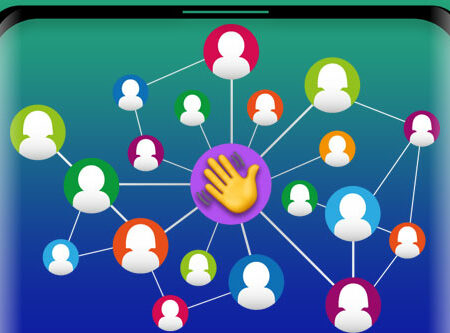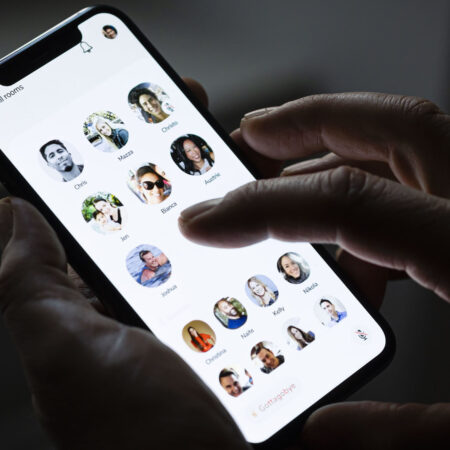It’s not always easy to predict how things will turn out, and this is especially true for the IT world. The popularity of Clubhouse, a social network for voice communication, was a result of a perfect storm no one could have expected: the pandemic hit, making us long for human interaction during the quarantine, and at the same time, the familiar text-based social media platforms have become either extremely stale or associated with political arguments, ideological clashes, and general online toxicity.
The Clubhouse app became an underdog in the technological race and managed to attract enough attention with its premise, as well as the invite-only policy, that millions of people, including world-famous celebrities, started using it daily. Unfortunately, such a quick success came with a price: the small team of developers was not ready to handle all the issues that arise when it comes to the less exciting aspects of social networks, like user privacy. Is there really a reason to worry? In order to answer that question, the aforementioned issues need to be addressed one by one.
Clubhouse Privacy: Expectation vs. Reality
One of the major appeals of Clubhouse is the fact that conversations happen in real-time, and do not get recorded. At least, they are supposedly not recorded by the platform itself, and the users are discouraged from capturing screen and audio on their devices. In certain cases, exclusions were made – like, for example, when Elon Musk was interviewing Vlad Tenev, the CEO of Robinhood. However, in general, we are to expect that whatever we say on the app is never recorded.
The first concerns were voiced by a team of Stanford researchers, who pointed out that Clubhouse’s data goes through the servers of a Chinese company Agora. At the time that data included user and room IDs, as well as the actual audio of the conversations. While technically this doesn’t necessarily mean that the founders of Clubhouse broke their promise, putting one’s privacy in the hands of a 3d party service, located in the country known for its surveillance practices, is not what most users expect.
What You Should Be Aware Of
Let’s make one thing clear: the issues described in this article are not exclusive to Clubhouse. In fact, most of them are typical for the Information Age, whether we like it or not. The only way to keep our data completely safe is by refusing to use any means of online communication whatsoever. Ultimately, it is a personal decision, however, most users tend to focus on the positive, and turn a blind eye to the uncomfortable truth. Having said that, here is what Clubhouse, in particular, is guilty of.
- The audio from Clubhouse rooms is recorded. Unlike many other types of social media, Clubhouse chats are not meant to stay on the platform. The conversation is supposed to occur once, and then be gone forever – that’s part of the appeal. However, even the app’s privacy policy states, that the audio in rooms is, in fact, recorded. Presumably, this is a temporary measure: if the moderators happen to receive many complaints about the contents of a particular discussion, they will be able to review them. If there are no complaints, the audio is deleted as soon as the room is closed.
- Clubhouse users may share your data without your consent. Even if you are not registered on the platform, one of your friends or colleagues might be, and if they give the app permission to see their contact list, your number will be compromised. Additionally, the data from any other social media profile you connect to Clubhouse may be collected and stored by the app.
- Deleting your Clubhouse account is not as simple as you might think. There is no “Delete Account” button anywhere on the app. The only way to erase your profile from the network is to write an email to tech support and hope that they will see it soon.
- Your personal data can be shared with other parties. Clubhouse’s privacy policy says as much. What that actually means is not particularly clear: it might have to do with advertisers, providers of engineering solutions, or anything else, really. The fact of the matter is: if you agree to the terms, your personal information can be shared without additional permission from you.
- Clubhouse tracks your activity. Like most websites and online services, the app uses cookies and other trackers to monitor your every move. This is often used in analytics to improve the effectiveness of advertisements, the users’ experience, or both.
Is Clubhouse Safe to Use?
In conclusion, Clubhouse is not much different from most social media apps and online services. It can be called ‘safe’ in the sense that its data tracking practices are nothing new or special. Most users wouldn’t be concerned about that. However, you should never assume that whatever you share on Clubhouse is completely private. If that doesn’t bother you, have fun using the fastest-growing platform in recent years!



Leave a Reply